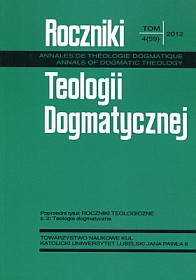Prawa dziejowe wielkich myśli
Abstrakt
Great thoughts: philosophical systems, intellectual currents and ideological outlooks are affected by the laws of historical change. The author briefly presents the following laws: (a) universal presence of mythology, irrespective of the degree of its cultural influence; (b) the law of ideological pluralism (a single global ideological system would thwart any great thought); (c) the law of historical sequencing and of historical continuity; (d) the law of historical pendulum; (e) inevitable presence of structural shortcomings (statements about the ultimate, cognitively exhaustive nature of one's own system of thought and the declaration that it offers sufficient instruments for creating heaven on earth); (f) degeneration of a system due to false founding premises (e.g. „freedom” as an essential of its own right, separated from truth, good, justice and the love of kin, which has led to the creation of the ideology of the European Union and leads it towards chaos, nihilism and atheism.). A vital denominator of any great thought is its reference to an idea of God. Jesus Christ, as the crown of all creation (Eph. 1:10) is also a redeemer of great thoughts and philosophical systems.

